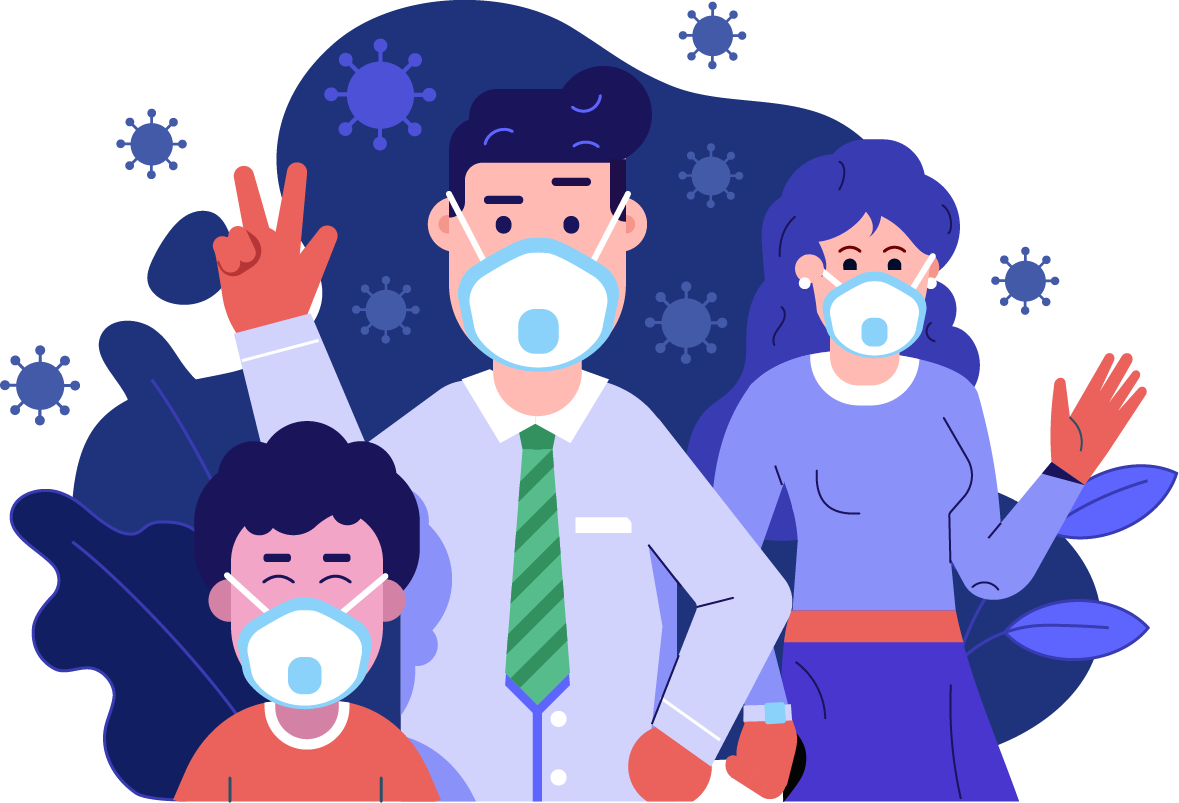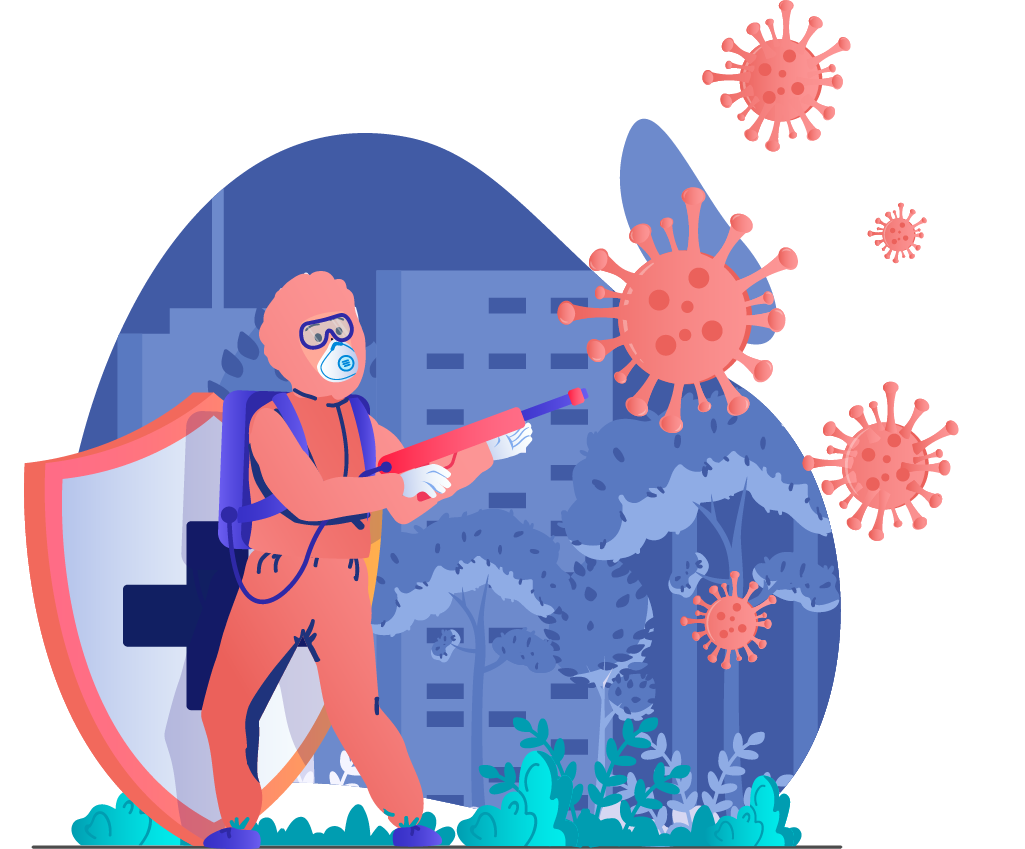
About Covid-19
History About Covid-19
COVID‑19 transmits when people breathe in air contaminated by droplets and small airborne particles containing the virus. The risk of breathing these in is highest when people are in close proximity, but they can be inhaled over longer distances, particularly indoors. Transmission can also occur if splashed or sprayed with contaminated fluids in the eyes, nose or mouth, and, rarely, via contaminated surfaces. People remain contagious for up to 20 days, and can spread the virus even if they do not develop symptoms.
Information
We Help To Protect Yourself From Covid-19
Preventive measures to reduce the chances of infection include getting vaccinated, staying at home, wearing a mask in public, avoiding crowded places, keeping distance from others, ventilating indoor spaces, managing potential exposure durations,[157] washing hands with soap and water often and for at least twenty seconds, practising good respiratory hygiene, and avoiding touching the eyes, nose, or mouth with unwashed hands
- Protection
- Prevention
- symptons
- Spread

What You Should Do :
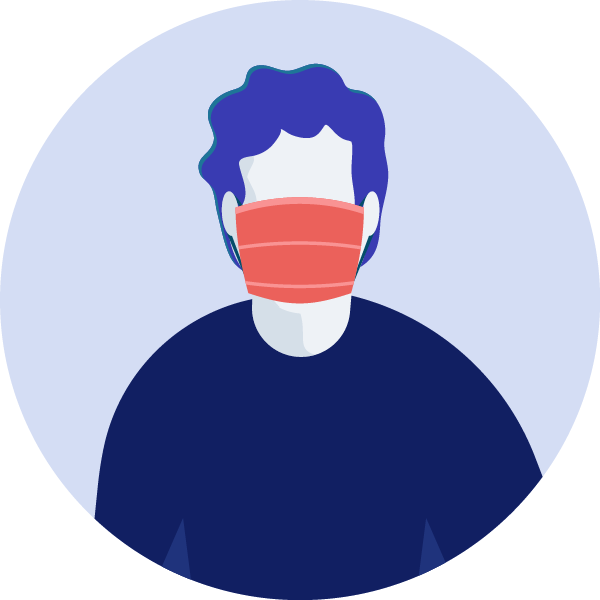
Wear Mask
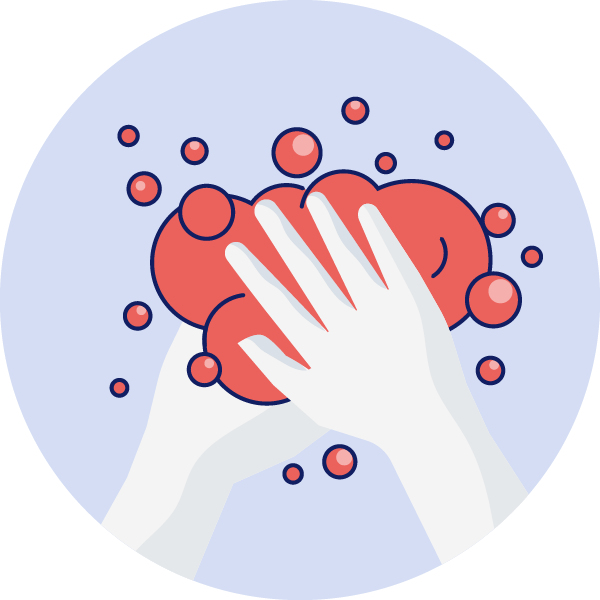
Wash Hand
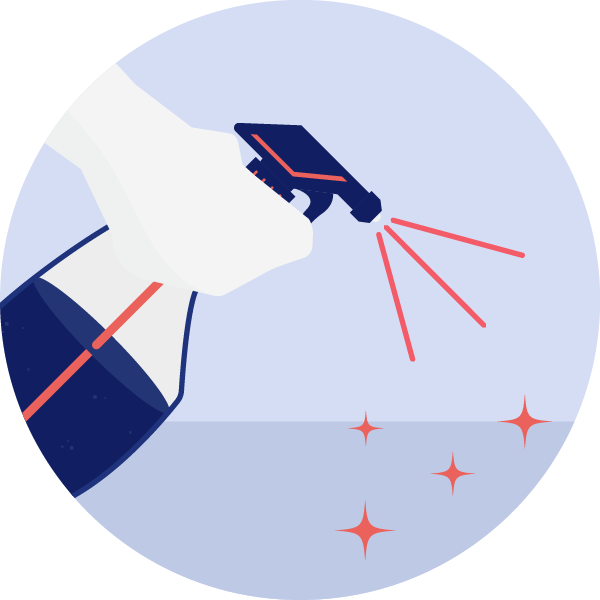
Always Sanitize
What You Shouldn't Do :

Come To Crowd

Handshaking

Animal Contact
Prevention
How Can I Protect Myself Form Covid-19?
The immune response by humans to SARS-CoV-2 virus occurs as a combination of the cell-mediated immunity and antibody production,just as with most other infections. B cells interact with T cells and begin dividing before selection into the plasma cell, partly on the basis of their affinity for antigen. Since SARS-CoV-2 has been in the human population only since December 2019, it remains unknown if the immunity is long-lasting in people who recover from the disease
